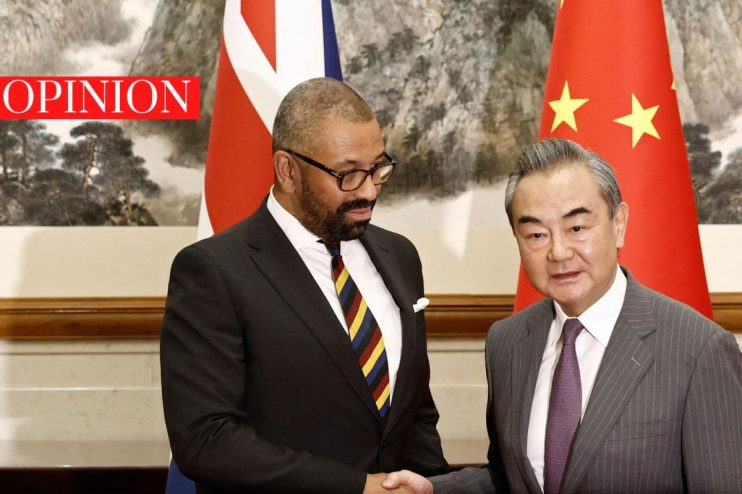Our complacency on China blinded us to the probability of spies in Parliament

Chris Cash, a 28-year-old former Parliamentary researcher, has been arrested and accused of spying for China – an allegation he denies. His arrest is a reminder of a far too sanguine British state, and it must serve as a wake-up call.
Perhaps we should turn back the clock a little to another very public spying scandal. In the 1930s, Kim Philby and four Cambridge friends were recruited by the Soviet Union. Each ascended to the top of the British state, with Philby rising highest. By the time of his defection, in 1963, he had betrayed countless British agents working behind the Iron Curtain. When John le Carre placed his fictional “mole” at the centre of Tinker, Tailor, Soldier, Spy, it was Philby he had in mind.
But while the suspect here has attained no rank near to Philby’s, there are elements of the story that resonate.
The first is a reminder that British institutions still operate on the Good Chap Theory. A plausible seeming public schoolboy can still squirm his way up the greasy pole without too many questions being asked. Philby thrived for so long because his peers simply could not believe that “one of their own” would betray their country.
Too often, simply looking and sounding the part can be enough to see plausible-looking types move into the corridors of power with no questions asked. Influential roles on the outskirts of Westminster, at think-tanks or pressure groups, come with absolutely no vetting whatsoever.
Perhaps the most important thing this story illustrates is how rosy-eyed Britain has been about China. For decades, the Chinese state has been actively undermining governments and businesses across the world. Its Belt and Road initiative has bought quasi-imperial power across the developing world. Its abuse of that power is shameless. When it built a new headquarters for the African Union, it bugged the building and hacked its computers.
China has been active in Britain too. The only nuclear power station under construction in Britain today, Hinkley Point, is a collaboration with a Chinese company. Huawei came within inches of providing much of our national 5G internet infrastructure, and the firm’s tech that was already in the system will remain there until 2027.
It has been our lasting mistake to think the same divide between economic and political power exists in China as here. While not officially an arm of the state, Chinese companies come under indirect control and regular coercion. Take Tiktok, the social media firm, for instance. For years, the Chinese state claimed that users’ data was not shared with them. Earlier this year, CNN reported a whistleblower at the firm who said the government accessed it regularly.
For too long, we have laboured under the illusion that China is playing by the same rules as the rest of us. In America, the same was once true, but it is no longer. The economic policies of the Biden Administration, sometimes called “Bidenomics”, have largely been spoken about in terms of their climate goals or their job creation. Underlying it all, however, is a realisation that America’s national security and its economic security are indivisible. Where the American economy has grown too reliant on Chinese largesse, America is now rebuilding American.
The British state is led by a government with an ideological allergy to industrial strategy that this approach requires. These revelations must serve as inspiration to change course. The Philby revelations changed the British secret services, and ultimately led to them successfully running a brilliant and brave double agent of our own – Oleg Gordievsky – until the closing days of the Cold War. We have the opportunity now to reassess how we respond to a belligerent Chinese state. History will not be kind to this government if we baulk at it.